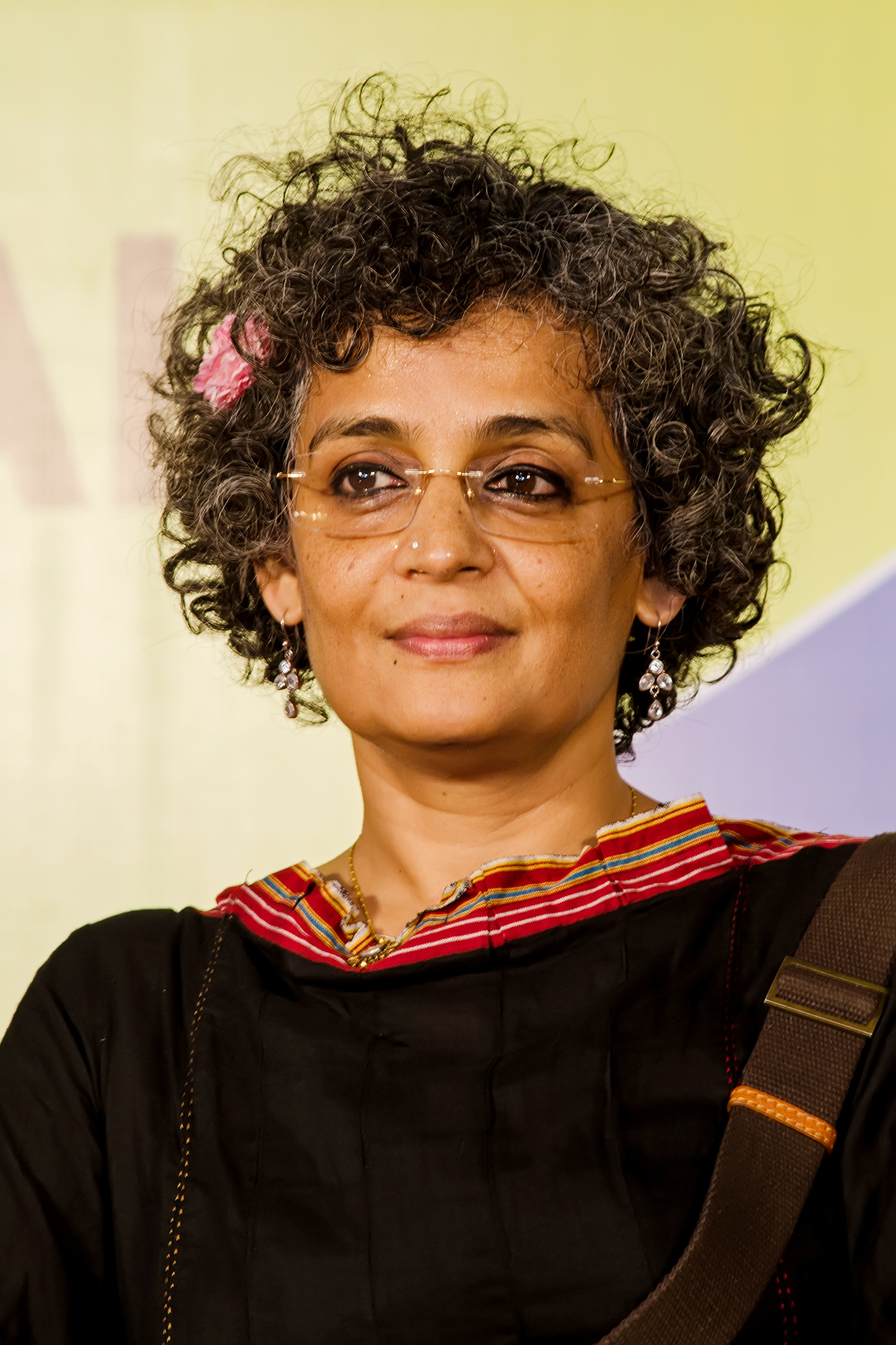Bóg rzeczy małych (1997)
Arundhati Roy słynne cytaty
Bóg rzeczy małych (1997)
Bóg rzeczy małych (1997)
Bóg rzeczy małych (1997)
Bóg rzeczy małych (1997)
Arundhati Roy cytaty
Bóg rzeczy małych (1997)
„Czuł się zielonofaliście, lepkowodniście, grudowato, ośliźle, tonąco, bezdenno-dennie.”
Bóg rzeczy małych (1997)
Arundhati Roy: Cytaty po angielsku
“Madness slunk in through a chink in History. It only took a moment.”
Źródło: The God of Small Things
“Humans are animals of habit.”
Źródło: The God of Small Things
“Enemies can't break your spirit, only friends can.”
Źródło: The Ministry of Utmost Happiness
From the book "The cost of living".
Speeches
Quoted in Was Arundhati Roy really misquoted by Pakistans... https://swarajyamag.com/ideas/was-arundhati-roy-really-misquoted-by-paks-un-rep-or-is-this-leftist-spin
From a speech http://www.greenleft.org.au/back/2004/569/569p12.htm given at the World Social Forum in Mumbai, 16 January 2004
Speeches
Źródło: An Ordinary Person's Guide to Empire (2005), p. 86
The End of Imagination August, 1998 http://www.hinduonnet.com/fline/fl1516/15160040.htm.
Articles
page 229.
The God of Small Things (1997)
Wariant: It didn't matter that the story had begun, because kathakali discovered long ago that the secrets of the Great Stories is that they have no secrets. The Great Stories are the ones that you have heard and want to hear again. The ones you can enter anywhere and inhabit comfortably. They don't deceive you with thrills and trick endings. They don't surprise you with the unforeseen. They are as familiar as the house you live in. Or the smell of your lover's skin. You know how they end, yet you listen as though you don't. In the way that although you know that one day you will die, you live as though you won't. In the Great Stories you know who lives, who dies, who finds love, who doesn't. And yet you want to know again.
That is their mystery and their magic.
The Algebra of Infinite Justice September 29, (2001) http://web.archive.org/web/20011006030417/http://website.lineone.net/~jon.simmons/roy/010929ij.htm.
Articles
“Humbling was a nice word, Rahel thought. Humbling along without a care in the world.”
The God of Small Things (1997)
A selection from a speech entitled "Peace given on November 7, 2004 while accepting the Sydney Peace Prize.
Speeches
Articles
The Greater Common Good May, 1999 http://www.narmada.org/gcg/gcg.html.
Articles
The Greater Common Good May, 1999 http://www.narmada.org/gcg/gcg.html.
Articles
Źródło: An Ordinary Person's Guide to Empire (2005), p. 91
The Greater Common Good May, 1999 http://www.narmada.org/gcg/gcg.html.
Articles
From a speech accepting the Sydney Peace Prize, November 07, 2004 http://www.zmag.org/content/showarticle.cfm?SectionID=41&ItemID=6594
Speeches
From a speech entitled Come September http://ada.evergreen.edu/~arunc/texts/politics/comeSeptember.pdf.
Speeches
